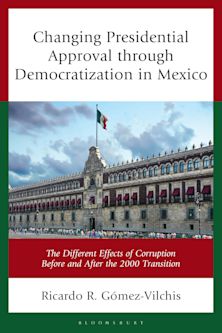Korean Collaboration in the Shadow of Japanese Rule
Negotiating Nationhood
Korean Collaboration in the Shadow of Japanese Rule
Negotiating Nationhood
Description
Jeong-Chul Kim excavates the complex role of Korean collaborators during Japanese colonial rule, offering a theoretical analysis of collaboration with foreign powers.
Kim argues that collaboration was central to establishing a colonial order under Japanese rule in Korea, as Korean collaborators navigated the conflicting demands of both Japanese rulers and their compatriots. Instead of passing judgment on these controversial historical figures, Kim focuses on how they influenced key moments in Korea's complicated colonial history through various strategies, including devaluing, recuperating, and erasing Korean identity. Using archival sources translated from Korean, the author shows that internal tensions within the colonized community, rather than just opposition to colonial regimes, shaped the development of Korean national identity. This book challenges traditional views of colonialism, emphasizing that indigenous collaboration is crucial to understanding the establishment, development, and sustainment of colonial rule. By focusing on the colonial intermediaries, this book fills the gap between abstract colonial policies and their implementation on the ground level and provides insights into the unintended consequences of the collaborators' intermediary actions as well as the ramifications which persist in contemporary Korean society.
Table of Contents
List of Figure and Tables
Acknowledgments
Notes
Introduction: Indigenous Collaboration
Chapter 1: Key Contradictions in Japanese Colonialism in Korea
Chapter 2: Roads to Collaboration
Chapter 3: Ilchinhoe's Devaluing Korea
Chapter 4: Neutralizing Korea during the March First Movement
Chapter 5: Kokumin kyokai's Recuperating Korea
Chapter 6: Erasing Korea under the Pressures of Wartime
Conclusion: Collaboration and Nationhood
References in English
References in Korean
Appendix
Index
About the Author
Product details

| Published | 27 Nov 2025 |
|---|---|
| Format | Ebook (Epub & Mobi) |
| Edition | 1st |
| Extent | 280 |
| ISBN | 9781978769670 |
| Imprint | Bloomsbury Academic |
| Illustrations | 1 b/w figure, 2 tables |
| Series | Korean Communities across the World |
| Publisher | Bloomsbury Publishing |
Reviews

ONLINE RESOURCES
Bloomsbury Collections
This book is available on Bloomsbury Collections where your library has access.






























